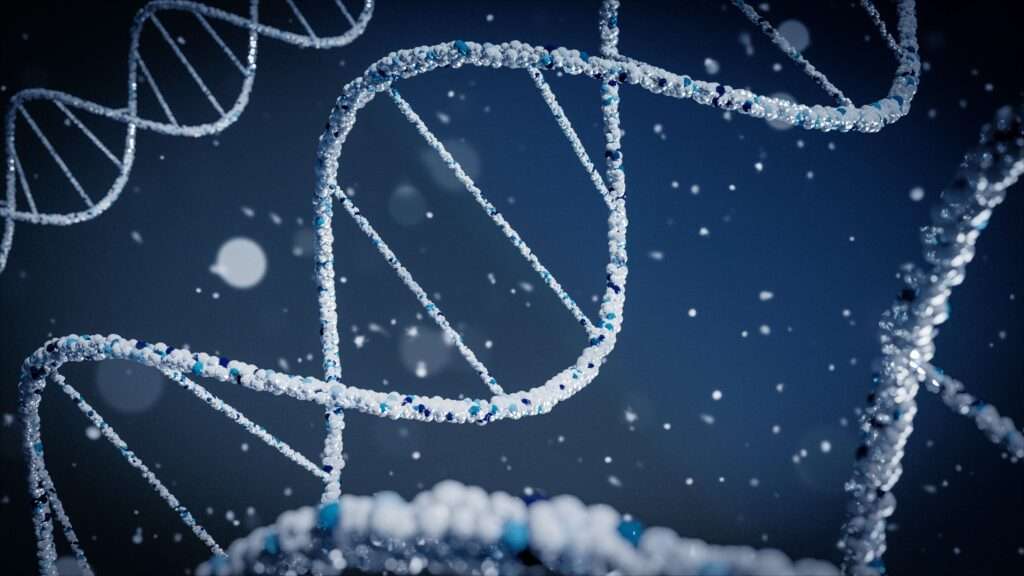Do you fear the day when you must defend your faith in the science room?
The stereotypical scenario involves an atheistic science professor crashing down on his Christian students with “proof” that God is a myth. Maybe this has actually happened to you, or perhaps you’re only anticipating it. But do you need to be afraid?
The purpose of this article is not to argue current scientific theories. That is beyond the scope of my website and expertise. (You’ll find external resources on the compatability of science and religion at the end of this post). But there are three main points I want you to understand:
- Science cannot be 100% certain
- Scientists are not the final authority
- Science and religion are not opposites

Hey, I’m Lauren, author of YA Christian fiction and
blogger for teens ready to level up in faith.
Subscribe for inspiring content and free YA ebooks!
In This Article
1) SCIENTIFIC THEORIES EVOLVE CONSTANTLY
As a kid, I was taught dinosaurs were big scaly lizards, similar to the ones In Jurassic Park. Now that I have kids, I’m seeing books depicting dinosaurs as having feathers—and looking more and more like our modern birds.
Something changed.
Discoveries in science are made using the aptly named Scientific Method:
- Make an observation.
- Ask a question.
- Form a hypothesis.
- Make a prediction based on the hypothesis.
- Test the prediction.
- Iterate: use the results to make new hypotheses or predictions.
Note that the final step is not “The End.”
Nothing that has been discovered by past scientists is safe from the scrutiny of future scientists with new tools. Thus, scientific theories change all the time. What’s taught today as plausible truth could be disputed tomorrow. A recent issue of an astronomy magazine I subscribe to had a notable headline: “What Came Before the Big Bang?”
“Science is fallible. Even at its best, science can make mistakes.”
Pacific Standard Magazine
Clearly, scientists are still searching for that one thing that set everything in motion.
An article in Pacific Standard magazine (Modern Scientists Are Wrong Far More Than You Think) states: “Science is fallible. Even at its best, science can make mistakes.”
Further complicating matters, once a theory becomes well-known, it’s hard to spread the news when it changes. People tend to cling to ideas long after they hear them. This is why modern textbooks often cite evolution and the Big Bang Theory as truths rather than emphasizing the hypothetical qualities of those concepts.
No one wants to give up the comfort of knowing something for the terrifying possibility they might be wrong.
The lesson to be learned? Don’t be swayed by someone who presents a theory as truth. A theory is just a theory—and it may become defunct tomorrow.

2) SCIENTISTS ARE NOT THE FINAL AUTHORITY
Beware of Atheist Scientists
I don’t say this because I’m worried they’ll try to steer you away from faith. But according to Marcelo Gleiser, renowned physicist and 2019 Templeton Prize winner, “atheism is inconsistent with the scientific method.”
“The absence of evidence is not evidence of absence.”
Marcelo Gleiser
An atheist is someone who declares he does not believe in God. Yet, as mentioned above, users of the scientific method cannot make declarations because there is no end. Some scientists may claim there is no evidence of God, but they cannot and never will be able to prove He does not exist.
As Gleiser says, “The absence of evidence is not evidence of absence.”
Any scientist who declares himself an atheist is making a personal statement of disbelief, not a scientific truth. No scientist can claim he has solved the problem of the origin of the universe.
Do not be led astray by bogus statements made by esteemed scientists.
3) SCIENCE AND RELIGION ARE NOT OPPOSITES
Despite what you may have been told, science and faith are not mutually exclusive. After all, God created them both.
For more on this:
- Is it a Leap of Faith to Believe in Jesus?
- Defending Your Faith: Win the Argument, Lose the Battle?
- How to Handle the Toughest Questions About God
GO TO THE ALL-KNOWING ONE FOR ANSWERS
“This is what the Lord says, he who made the earth, the Lord who formed it and established it—the Lord is his name: ‘Call to me and I will answer you and tell you great and unsearchable things you do not know.’ “
Jeremiah 33:2-3
God has given us his Word. Trust in him and do not let yourself be swayed by imperfect theories created by imperfect humans using an imperfect method.
More Resources to Help You Defend Your Faith in the Science Room

You don’t have to have all the answers.
But, hey, why not?
Bring me your questions about faith, life, God, the Bible… and I’ll help you find the answers.
Are science and religion compatible? See why they go hand-in-hand in my post Is it a Leap of Faith to Believe in Jesus?
Gear up for defense with Armor of God 101: Unlock Your Gear For Battle.
What happens when someone stumps you with a question? See how to navigate the tough situations with How to Handle the Toughest Questions About God.
Maybe it’s not outside beliefs you’re trying to convince, but your own. If you’re struggling with your own faith, check out Questioning Your Beliefs? Great, it’s Time to Grow!
For more encouragement in all aspects of the Christian teen life, subscribe to my blog. Not only will you get tools to defend your faith but also encouragement for evangelism and help in finding solid Christian media, both fiction and nonfiction.
External resources about science and religion:
You do not have to be afraid to defend your faith in the science room—or anywhere else!